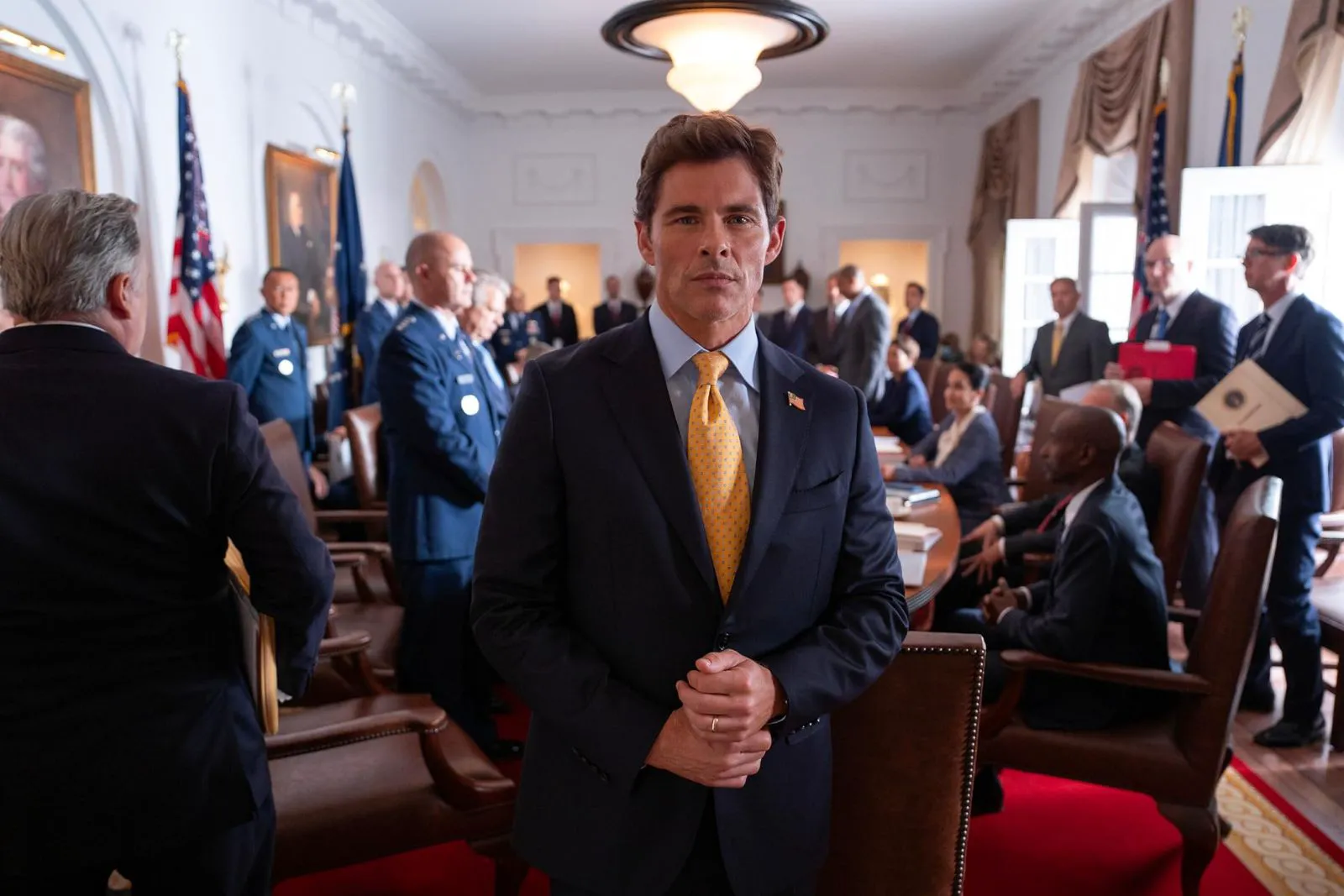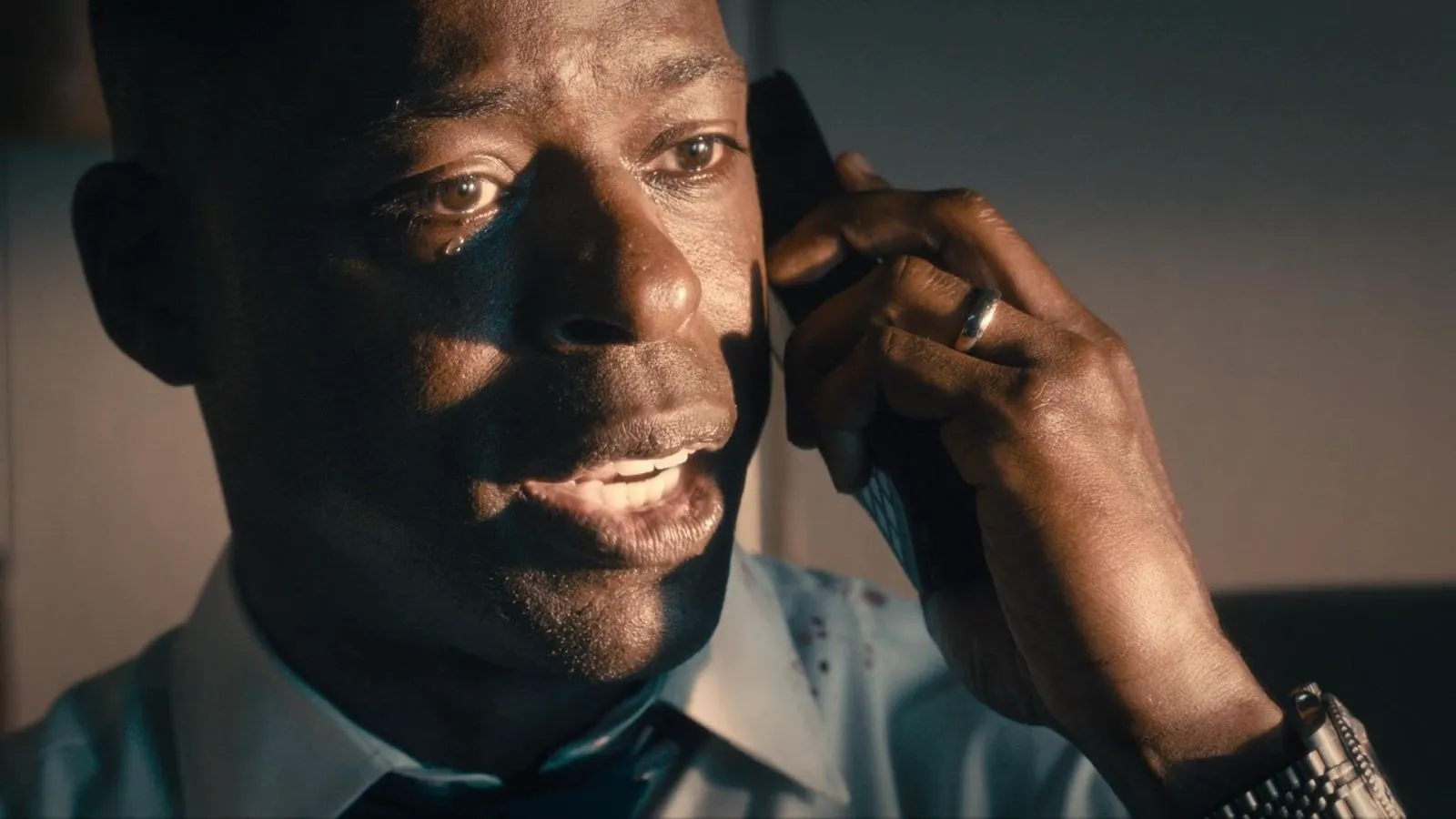The Enigmatic Depths of “Paradise”: A Review
Five AM. A man (Sterling K. Brown), who hasn’t slept a wink all night, reluctantly rises from his bed. What follows is a meticulously planned routine: a run, a shower, breakfast with his children, work – his day is scheduled down to the minute. He is Xavier Collins, the head of the President’s security detail. After selecting the most suitable attire from a wardrobe filled with identical shirts and jackets, Xavier heads to work. Upon arrival and after completing all the formalities, the agent discovers President Bradford (James Marsden) dead in his own bedroom. There are no signs of forced entry, the surveillance footage is blank, and the last person to see the President alive was Collins himself. The previous evening, the two men had engaged in a deep conversation. Now, the agent must conduct a complex investigation to find the killer of the high-ranking official. The case is further complicated by the fact that it all happened in the city of Paradise – an underground settlement of 25,000 people. These are the citizens selected by the U.S. government, trying to lead normal lives after a massive catastrophe that wiped out most of the Earth’s population.

Sterling K. Brown as Xavier Collins in a still from the series “Paradise”
Dan Fogelman’s Genre-Bending Vision
Showrunner Dan Fogelman is an alumnus of Pixar, having penned the screenplays for “Cars” and “Cars 2.” However, Fogelman had no intention of lingering in the realm of animation for long, and in 2014, he made his directorial debut with the film “Danny Collins,” starring Al Pacino. In 2018, he solidified his success with “Life Itself,” featuring Oscar Isaac, Olivia Wilde, and Antonio Banderas. Despite the warm reception from audiences, Fogelman’s directorial career remains limited to these two films. Instead, he chose the role of showrunner. In 2016, Fogelman achieved success with the series “This Is Us.” The drama about the Pearson family received numerous prestigious awards, including three Emmys and a Golden Globe. In the six-season show, Fogelman explored the history of one family, organically blending conventional melodrama with detective elements. “Paradise” is an even more ambitious project, incorporating not only the detective component and the cliffhangers and twists from “This Is Us,” but also the leading actor, Sterling K. Brown.

James Marsden as Carl Bradford in a promotional still from the series “Paradise”
A Fusion of Genres and Themes
In “Paradise,” Fogelman skillfully juggles genres, intertwining not only a political thriller with a family drama, but also a dystopian narrative with a disaster film. The plot gradually unfolds through flashbacks, which form the basis of the entire narrative, creating an incredibly relevant portrait of modern times. While the world teeters on the brink of ecological disaster, most countries are only concerned with their internal military capabilities, and a headstrong president sits in the White House, backed by power-hungry billionaires. During massive cataclysms, instead of trying to save their citizens, leading countries resort to the mutual use of nuclear weapons. Therefore, “Paradise” aligns itself not only with “Silo,” but also with last year’s “Fallout” and “Extrapolations.”

Sterling K. Brown as Xavier Collins in a still from the series “Paradise”
However, Fogelman’s series shares a greater degree of kinship with “Lost.” There’s the intricately woven narrative, seasoned with numerous flashbacks, and the constant desire to shock the viewer by throwing new mysteries at them in each episode. Are there any survivors on the surface? What exactly happened to the Earth? Did Collins’ wife die? Who killed the President and why is the Paradise government hiding his death from everyone? These are the questions that will plague not only the viewers, but also the characters. Collins’ investigation will anger the local demiurge, who stands behind the deceased President and literally programs reality. Instead of an ideal world, they built a mini-copy of the world that perished. The wealthy elite control everything from their offices, while the people live in an illusion. The old world collapsed, but class inequality, permissiveness, and the absence of boundaries for absolute power were smuggled in by the lucky ones who found a place in the bunker.

Sterling K. Brown as Xavier Collins in a still from the series “Paradise”
Pop Culture References and Stellar Performances
Fogelman not only skillfully increases the tension from episode to episode, gradually revealing the motives of each character, but also organically references pop culture and works of art, complementing the already detailed world. The charismatic President often listens to 80s rock and quotes “Die Hard,” and in one scene, the painting “The Mosquito Net” by American painter John Singer Sargent appears in the frame. The ladies in the painting have covered themselves with a dark canopy to protect themselves from mosquitoes, naively believing that it will save them from the insects. Just as the President hid from the agonizing world in a safe city, but this did not save him from a potential killer.
However, “Paradise” is memorable not only for its relevant perspective on today’s world, coupled with a coherent detective component, but also for its brilliant acting performances. Agent Collins, played by Oscar nominee Sterling K. Brown, appears as a deeply traumatized and grieving man. Behind the impenetrable exterior – in one episode, he literally stops a bullet with his body – hides a vulnerable soul, longing for his significant other. James Marsden’s acting charisma – having previously played the President of the United States in the film “The Butler” – allows us to imagine the head of the nation not just as a lightweight manager, but as a deeply tragic figure, forced to make difficult and not always humane decisions every day. Fogelman seems to remind us once again: politics is a dirty business, and the wealthy are used to playing in this dirt. However, the most striking role is given to Julianne Nicholson, who once again demonstrates a wide acting range. This time, the actress embodies the image of an almost demonic antagonist, whose main goal is to preserve peace and tranquility in the underground city at any cost.
“Paradise” will definitely appeal to fans of “Lost” and spectacular dystopian series like “Westworld” – the presence of Marsden in the cast is a pleasant bonus. The series surprises not only with its abundance of cliffhangers, but also with its well-crafted drama. The show has already been renewed for a second season, and there is a high probability that the main plot twists are yet to come.